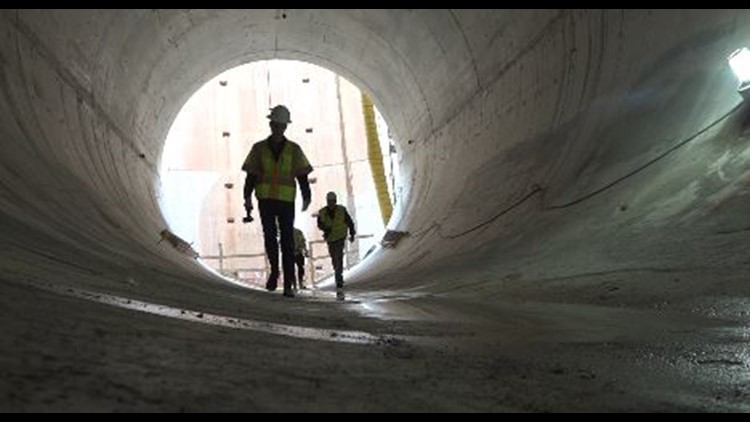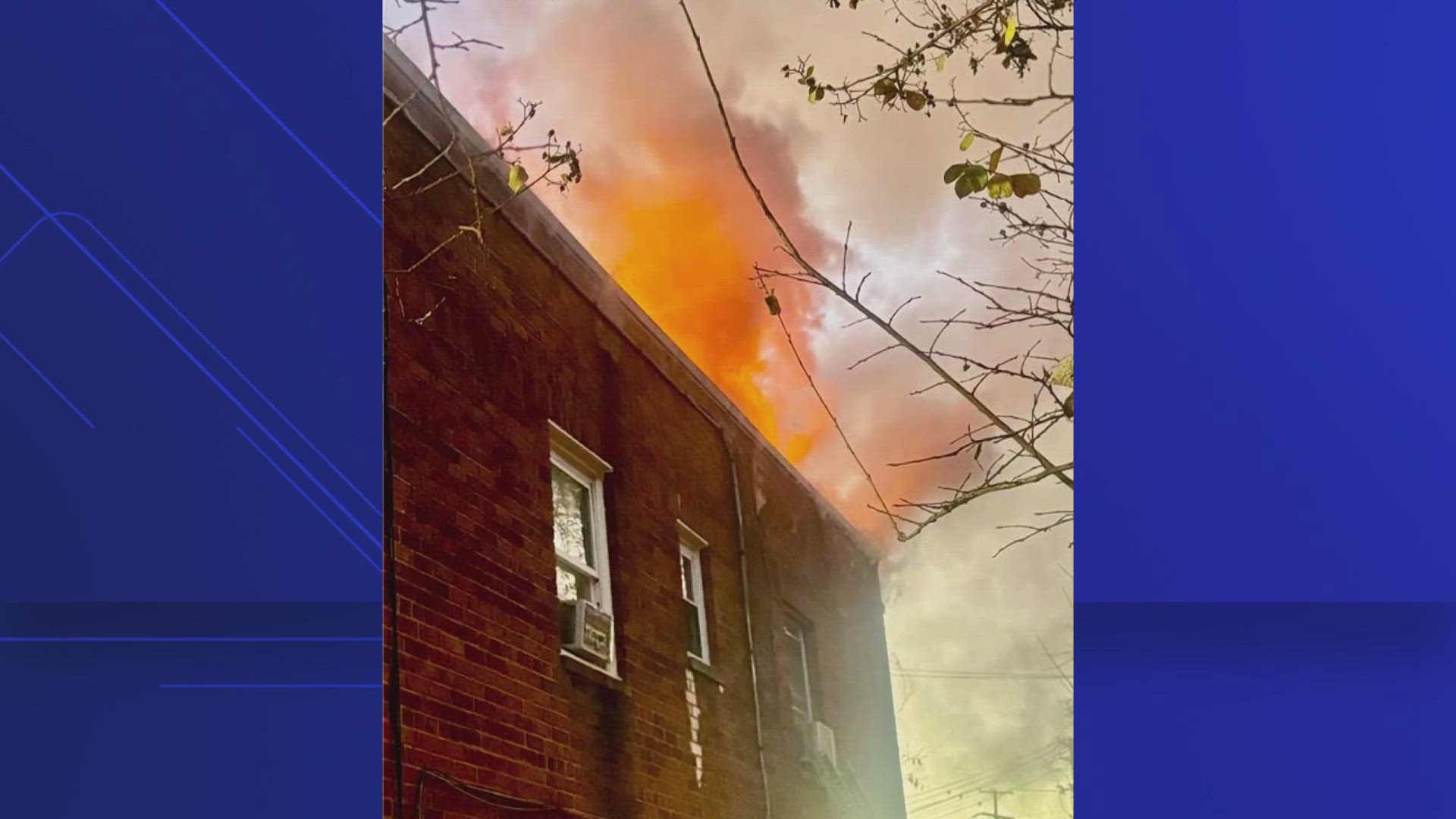WASHINGTON (WUSA9) — It's the biggest public infrastructure project in D.C. since the Metro was built, but few people have ever heard of it.
On Wednesday, Phase 1 of the $2.7 billion Clean Rivers Project was dedicated and cameras were allowed into the gigantic underground bowels of the jobsite for a first-hand look at what promises to be an environmental game-changer, according to project director Clayton Ray.
"This is the biggest environmental improvement to the Anacostia River in the history of the river, Ray said.

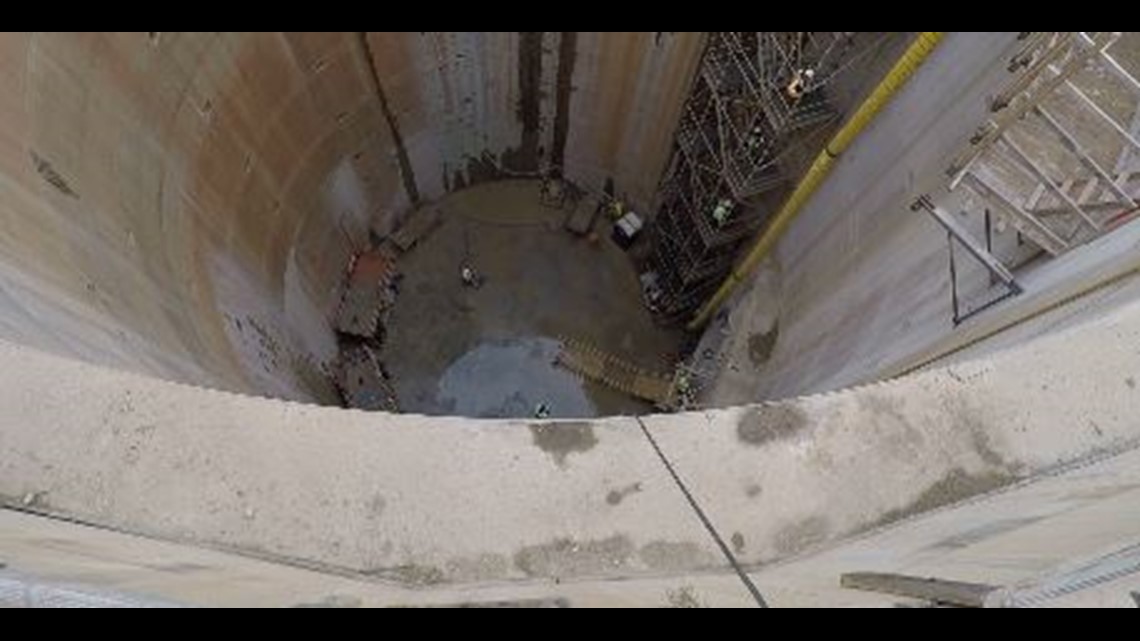
The Clean Rivers project is a 13-mile tunnel and cistern system buried 11 to 16 stories underground designed to capture billions of gallons of raw sewage that is dumped into the Anacostia every time it rains.
The Clean Rivers Project acts as an underground reservoir system and solves a problem unique to older cities like Washington, where storm water and raw sewage mix during storms. The resulting deluge overwhelms the system and causes frequent overflows of untreated waste directly into the Anacostia.

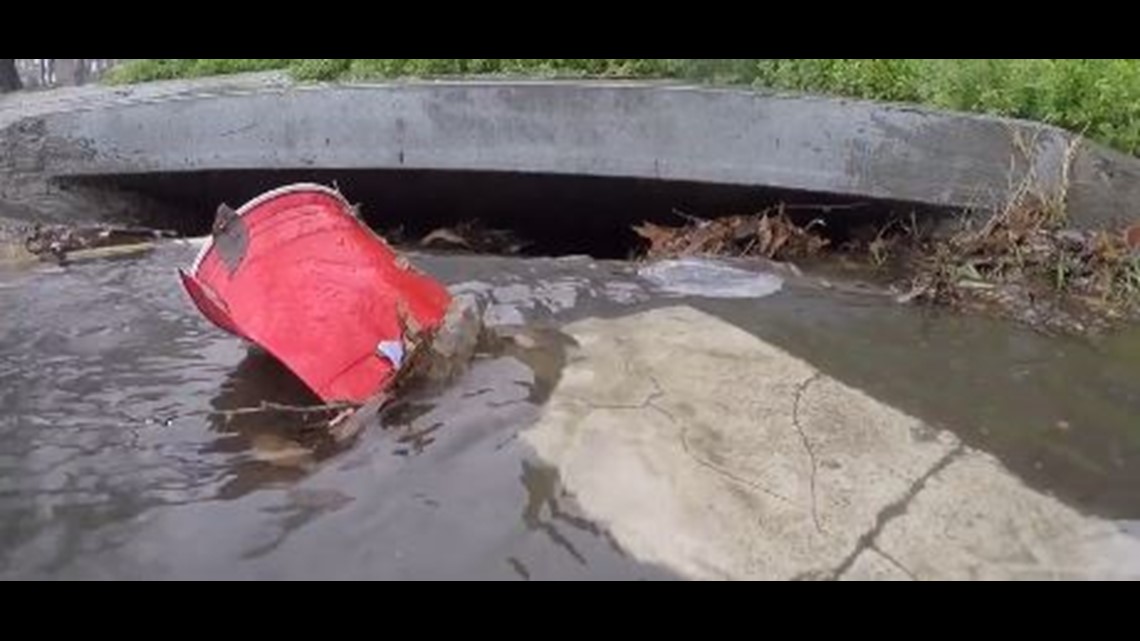
For more than a century, the Anacostia has paid the price. It is currently the most polluted major river in the region because of spills that occur between 75 and 80 days per year.
Now, the badly polluted water will be captured and held until it can be piped away to be treated at the Blue Plains Wastewater Treatment Plant.
Phase 1 of the project will reduce overflow episodes to approximately 25 days per year. By 2022, the completed project should stop all but two spills per year.
One access point is an 11-story deep concrete silo built near parking lot 8 at RFK stadium. From there, the project looks something like an over-scale secret nuclear missile bunker. It's so deep, it runs underneath Metro's Green Line.

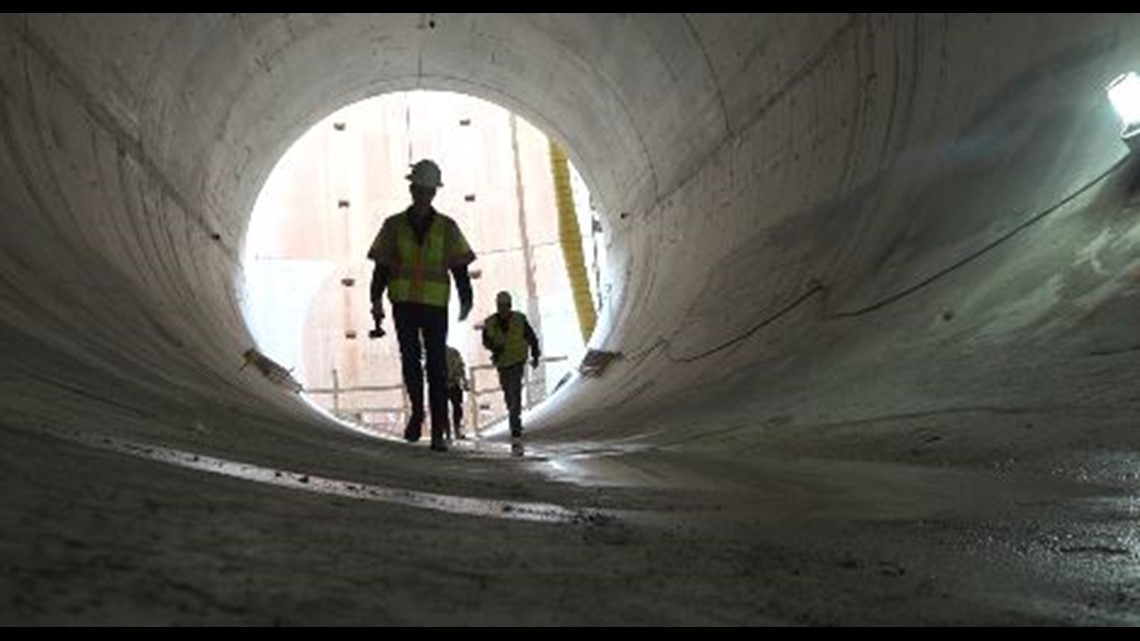
The Anacostia River is likely to be completely safe for swimming by 2022 thanks to the project, according to Emily Franc, the Anacostia Riverkeeper.
"This is huge," she said.
PREVIOUS: How rain causes fires in Metro tunnels
The Clean Rivers Project is part of DCWater's commitment to the federal government and courts to comply with national environmental standards, according to a consent decree being monitored by a federal judge.
Recent rate hikes for DCWater are paying for much of the $2.7 billion project.

